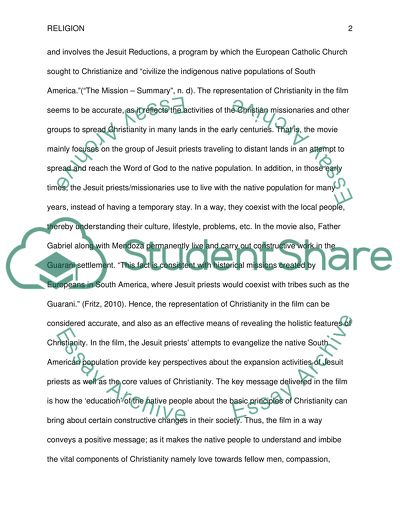Cite this document
(“The Mission - from Religious and Theological Perspective Essay”, n.d.)
The Mission - from Religious and Theological Perspective Essay. Retrieved from https://studentshare.org/religion-and-theology/1454100-this-is-a-religion-paper-based-on-the-film-the
The Mission - from Religious and Theological Perspective Essay. Retrieved from https://studentshare.org/religion-and-theology/1454100-this-is-a-religion-paper-based-on-the-film-the
(The Mission - from Religious and Theological Perspective Essay)
The Mission - from Religious and Theological Perspective Essay. https://studentshare.org/religion-and-theology/1454100-this-is-a-religion-paper-based-on-the-film-the.
The Mission - from Religious and Theological Perspective Essay. https://studentshare.org/religion-and-theology/1454100-this-is-a-religion-paper-based-on-the-film-the.
“The Mission - from Religious and Theological Perspective Essay”, n.d. https://studentshare.org/religion-and-theology/1454100-this-is-a-religion-paper-based-on-the-film-the.


